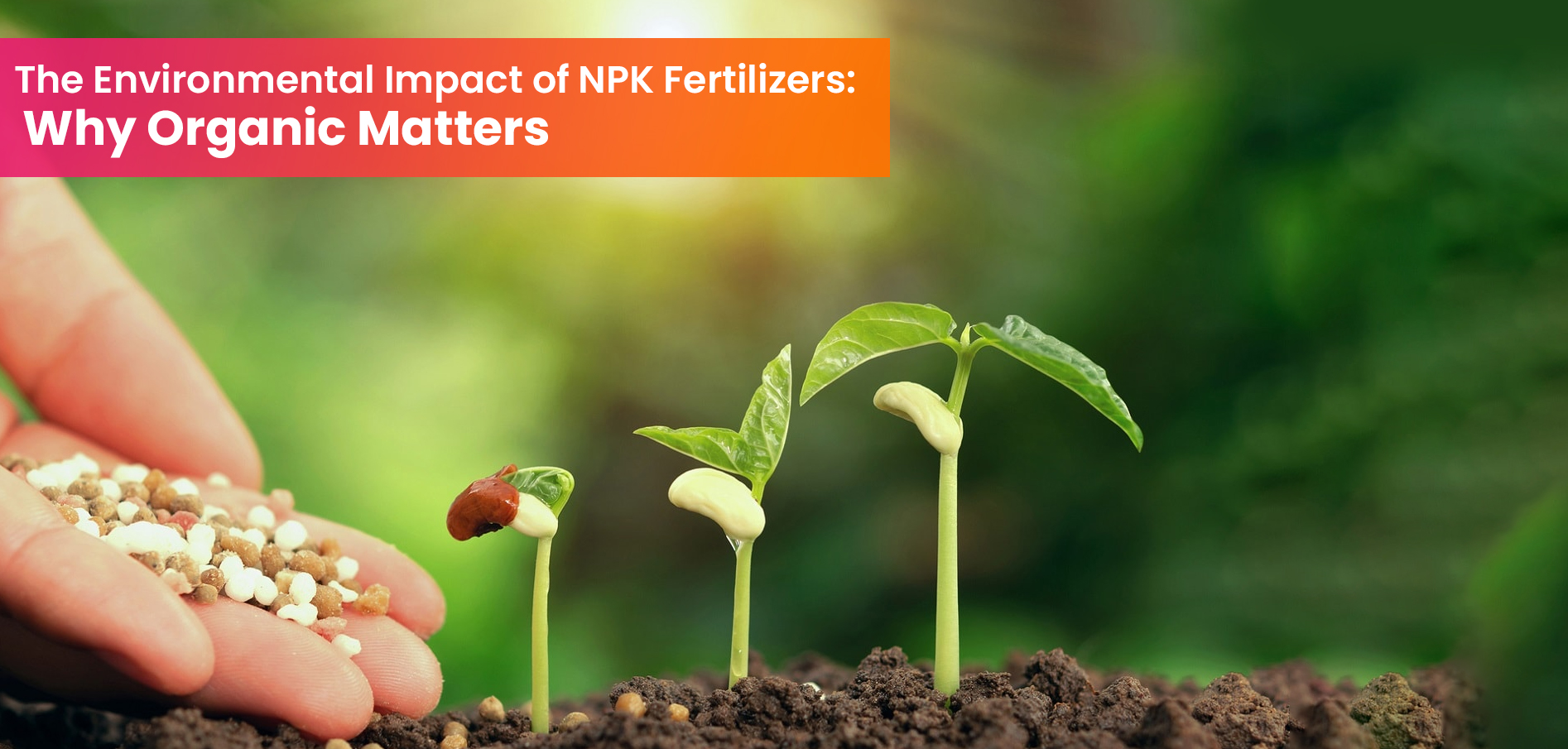


A fertilizer's choice can impact not only the growth and health of plants, but also the environment's well-being. It has been noted that synthetic NPK fertilizers (Nitrogen, Phosphorus, and Potassium) have an adverse impact on the environment. We examine the environmental consequences of traditional NPK fertilizers in this blog post and show why opting for organic alternatives, like those offered by ADASCA, is a conscious choice for both growers and the environment.
The synthetic predicament
The conventional choice for farmers and gardeners seeking to boost crop yields has long been NPK fertilizers, which contain synthetic chemicals. In exchange for this convenience, however, the environment suffers. Water pollution caused by runoff from synthetic NPK fertilizers can negatively impact aquatic ecosystems, causing algal blooms and contributing to water pollution.
Soil Health in Jeopardy
Continuous use of synthetic NPK fertilizers has been linked to soil degradation and nutrient imbalance. These fertilizers often lack the diverse array of micronutrients that are crucial for sustaining robust and fertile soil. As a consequence, the soil becomes more dependent on external inputs, leading to a cycle of dependency that may compromise its long-term health.
Organic Fertilizers: A Greener Alternative
Enter organic fertilizers, a sustainable solution that aligns with the principles of environmental responsibility. ADASCA’s organic fertilizers, for instance, are carefully crafted to provide plants with essential nutrients while minimizing the ecological footprint. Derived from natural sources, these fertilizers contribute to the enrichment of soil structure and microbial diversity, fostering a healthier and more resilient environment.
Nurturing Nature with Organic NPK
Organic fertilizers are inherently gentler on the environment. Moreover, their production involves fewer energy-intensive processes compared to the manufacturing of synthetic counterparts, making them a greener choice from the very beginning of their life cycle.
The Ripple Effect: Beyond Your Garden
By choosing organic NPK fertilizers, you're not only investing in the health of your garden but also participating in a broader movement toward sustainable agriculture. Supporting organic practices encourages biodiversity, reduces greenhouse gas emissions, and mitigates the environmental impact associated with conventional farming methods.
Conclusion: Cultivating a Greener Tomorrow
In the face of growing environmental concerns, the choices we make as consumers and cultivators matter more than ever. Opting for organic NPK fertilizer, like those offered by ADASCA, is a small yet significant step toward cultivating a greener tomorrow. It's a commitment to nurturing the land in harmony with nature, fostering healthier ecosystems, and leaving a positive impact on the environment for generations to come.